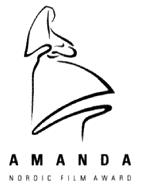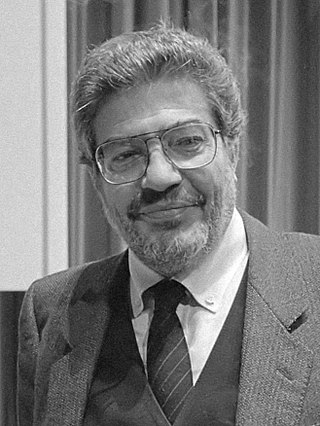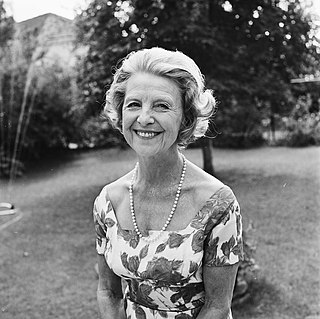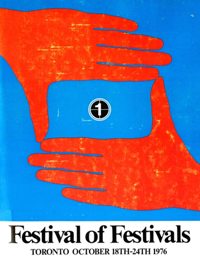
The Amanda Award is an award given annually at the Norwegian International Film Festival in Haugesund, Norway, to promote and improve Norwegian film. The award originated in 1985, and has since 2005 been exclusively a film award. Winners are awarded a trophy by the Norwegian sculptor Kristian Kvakland, and the name—and theme—of the sculpture comes from a legendary local woman from the 1920s. The award ceremony is marked every year by a major, nationally televised event.
Women's cinema primarily describes cinematic works directed by women filmmakers. The works themselves do not have to be stories specifically about women and the target audience can be varied.

Ettore Scola was an Italian screenwriter and film director. He received a Golden Globe for Best Foreign Film in 1978 for his film A Special Day and over the course of his film career was nominated for five Academy Awards for Best Foreign Language Film.
Léa Pool C.M. is a Canadian filmmaker who taught film at the Université du Québec à Montréal. She has directed several documentaries and feature films, many of which have won significant awards including the Prize of the Ecumenical Jury, and she was the first woman to win the prize for Best Film at the Quebec Cinema Awards. Pool's films often opposed stereotypes and refused to focus on heterosexual relations, preferring individuality.

Cinema in Norway has a long history, dating back to the beginning of the 20th century, and has an important stance in European cinema, contributing at least 30 feature-length films a year.

Danniel Danniel was an Israeli film director, screenwriter and film editor. He lived in the Netherlands since 1980. He died in the morning of 4 May 2017 in Amsterdam.
Anja Salomonowitz is an Austrian film director and screenwriter, specialised on documentary films with political or social background.
Yvonne Welbon is an American independent film director, producer, and screenwriter based in Chicago. She is known for her films, Living with Pride:Ruth C. Ellis @ 100 (1999), Sisters in Cinema (2003), and Monique (1992).

The 32nd Cannes Film Festival was held from 10 to 24 May 1979. The Palme d'Or went to Apocalypse Now by Francis Ford Coppola, which was screened as a work in progress, and Die Blechtrommel by Volker Schlöndorff.
Arven is a 1979 Norwegian drama film directed by Anja Breien. It was entered into the 1979 Cannes Film Festival.
Dager fra 1000 år is a 1970 Norwegian anthology film written and directed by Anja Breien, Egil Kolstø and Espen Thorstenson. These three young directors got a chance to each contribute to a segment of a featured film. The three episodes take place in the past, the present, and the future.

Kenneth Elvebakk is a Norwegian documentary film director. He has won several international awards for his documentary films.
Margaret Lazarus is an American film producer and director known for her work in documentary film. She and her partner, Renner Wunderlich, received an Oscar in 1993 for their documentary Defending Our Lives, about battered women who were in prison for killing their abusers.

Ada Kramm was a Norwegian stage and film actress whose career spanned more than six decades.
Anne Karoline Frogner is a Norwegian filmmaker, photographer, writer and lecturer. She is one of Norway's foremost documentary filmmakers and is a stills photographer for the image agency Samfoto. She is the director of production company Integritet Film AS and the author of several books.

The 1st Toronto International Film Festival (TIFF) took place at Windsor Arms Hotel, Toronto, Ontario, Canada between October 18 and October 24, 1976. Initially its name was Festival of Festivals, which remained until 1994 after which it became the Toronto International Film Festival. It showcased 127 feature films from 30 different countries with the audience of 35,000. It featured some of the best films from film festivals around the world. Most of the Hollywood studios later withdrew their submissions citing reason that Toronto audiences would be too parochial for their films. Cousin Cousine, a French film directed by Jean-Charles Tacchella was selected as the opening film and screened at Ontario Place Cinesphere and Queen of the Gypsies was the closing film. German cinema was focused upon, with films from German directors such as Rainer Werner Fassbinder, Wim Wenders and Werner Herzog.

Kule kidz gråter ikke is a 2014 Norwegian drama film directed by Katarina Launing. It is a remake of the 2012 Dutch film Achtste Groepers Huilen Niet, which was based on the book Achtste-groepers huilen niet by Jacques Vriens. The movie stars Mia Helene Solberg Brekke, who portrays Anja, a teen with cancer.
Pascale Ferran is a French film director and screenwriter. In 2007, her film Lady Chatterley won five César Awards including Best Film, Best Cinematography and Best Adaptation. Her 2014 film Bird People was selected to compete in the Un Certain Regard section at the 2014 Cannes Film Festival. Ferran also wrote the screenplay for The Red Turtle, an animated film by Michael Dudok de Wit, that competed in the Hawaii International Film Festival on 12 November 2016.
Wives – Ten Years After is a 1985 Norwegian drama film directed by Anja Breien. The film was selected as the Norwegian entry for the Best Foreign Language Film at the 58th Academy Awards, but was not accepted as a nominee.

Natalia Leite is a Brazilian writer and director. She is best known for directing the indie hit film M.F.A., a feminist rape-revenge thriller that spurred debates at the start of the #MeToo movement. Subsequently, she went on to direct episodes of The Handmaid's Tale. Her work has been described as having “a bracing, assertive style” (Variety), "emotional intelligence", and as “cementing the reign over highly stylized, sexually progressive dramas” (Slant). Leite is known to incorporate her documentary subjects into her scripted films.









